It can be easy to assume a cat’s behaviour is the result of a grudge they are holding but the truth is, cats don’t hold grudges.
Your cat will behave differently in different situations and will associate certain actions or items with past events (positive and negative).
However, this is not out of them feeling ongoing anger or resentment for that event but is simply them trying to avoid re-experiencing something they remember to be stressful.
Remember that every cat is an individual so some will be more laid back while others will be more cautious.
Contents
Do Cats Forgive?
If you accidentally step on your cat’s tail or paw, it is likely they will be upset as they would’ve found it painful and stressful but don’t worry, these bad feelings won’t last long.
After an apology, some affection and a treat or two all will be forgiven and forgotten.
Your cat is more likely to forgive you quickly if the situation was a short, once-off event that wasn’t too painful or traumatic.
A behavioural study found that cats did not avoid certain people or areas after they were restrained during a vet visit, this indicates they do not hold onto any negative feelings after a one-off bad experience.
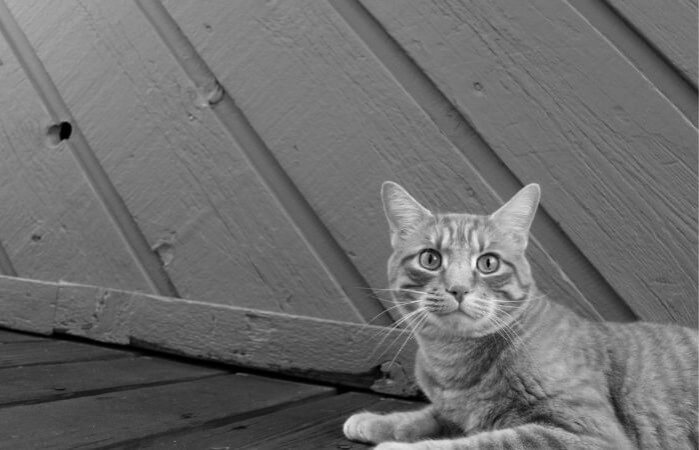
A more complex issue is if your cat has experienced repeated mistreatment in the past, in this case, they will hold long-term memories of the trauma as a way to help them avoid such events happening again.
The cat is not holding a grudge but is using memory to help stay safe. In these situations, the cat will likely be more fearful and anxious around humans.
They will avoid the abuser, anybody that reminds them of the abuser and there may be certain things that trigger their fear response such as tone of voice, a certain perfume etc.
Cats can feel a range of emotions and negative emotions are usually the result of stress.
Taking the time to build a relationship with your cat is important in helping them gain confidence and be able to trust you.
Slowly, your cat may begin to forgive and relax when around you but in these situations, it can be a long road and there are no guarantees.
If your cat is most comfortable keeping their distance from humans then respect this as best you can.
Why is My Cat Upset?
As all cat owners know, it doesn’t take much to upset a cat.
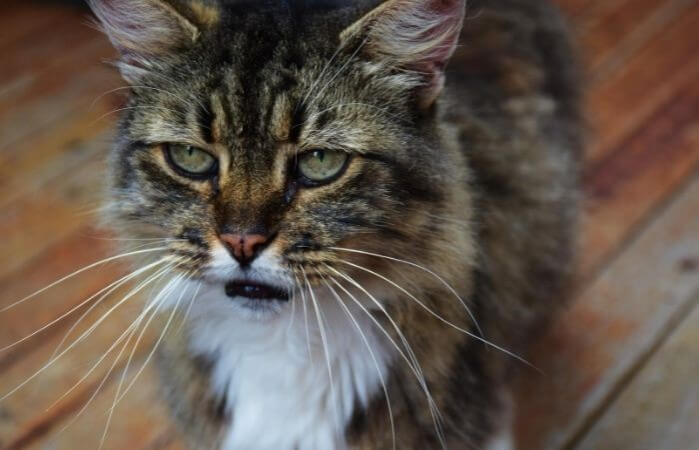
However, it becomes much easier to keep your cat happy if you understand what it is that upsets them and the ways they let you know about it.
The typical signs that a cat is upset include:
- Swishing tail
- Holding ears low and flat against the head
- Arching the back
- Hissing or growling
- Staring (dilated pupils)
- Swiping
- Puffing up tail
If your cat seems to be angry with you, give them space so they can calm down.
Take some time to think about why your cat may be feeling angry, it is likely that something is causing them to feel stress or anxiety and identifying the cause of this will help you prevent future upsets.
It is important to have a bond with your cat as if they trust you and feel comfortable around you it will help resolve any situations where they feel upset more quickly.
If you’re not sure why your cat is upset, here are some of the most common things that can make cats angry:
- Being picked up
- Physical pain (e.g. accidentally stepping on your cat’s paw or tail)
- Petting them too much
- Touching delicate skin such as their belly
- Making a lot of noise
- Waking them up when sleeping
- Moving furniture around
- Not cleaning their litter box
- Changing or delaying their play and feeding time routine
- Leaving them alone for a long time
- Ignoring them when they want attention
- Giving other pets more attention
- New people in the house
Keep in mind your cat could also be unhappy about something else that happened that has nothing to do with you.
You could still experience the frustration of your cat through redirected aggression but it may have been something else that caused the upset in the first place.
Making Amends
If your cat is upset, give them space and when they are ready they will approach you.
You can encourage this by talking and letting your cat know you are around if they want to make up.
Cats are very responsive to their owner’s voice and facial expressions so it is important you remain calm and friendly.
When your cat comes over, give them attention (gently), offer them a treat and spend one on one time with them to build that bond and trust.
Your cat will quickly move on from whatever it was that upset them.
My Cat Won’t Forgive Me
You may be reading this article about cats holding grudges because you feel your cat isn’t willing to forgive you and you are worried they are holding a grudge against you for something you have done.
This is not the case, they won’t be holding a grudge.
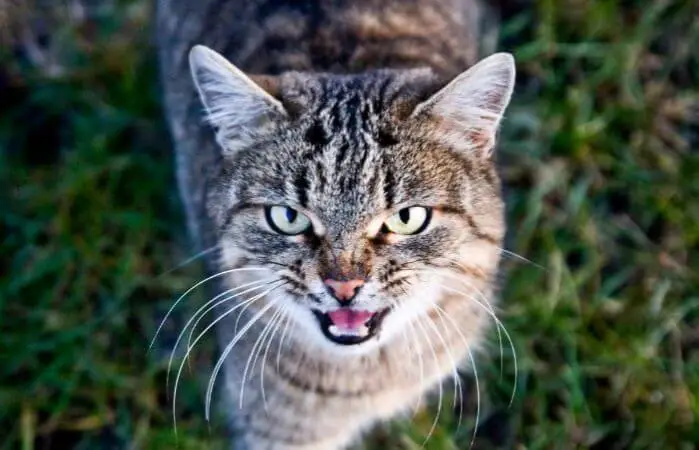
However, they may be experiencing ongoing stress or feel aggravated by a behaviour you exhibit frequently.
For your cat to remain upset or angry, they will still be experiencing and feeling some kind of stress or anxiety.
You can help your cat feel comfortable by taking note of the common things that upset cats (listed above) and try the following:
- Sticking to their usual routine
- Offering plenty of toys (rotate their toys so they don’t get bored of having the same ones all the time)
- Giving them attention and company when they want it
- Have calming scents around the home
- Avoid unnecessary exposure to loud noise
Ultimately, you want your cat to feel comfortable and relaxed and these simple steps can help achieve that.
If you are finding that your cat is still anxious and stressed, it may be worth getting them checked by your local vet and maybe a pet behaviourist as they will be able to help identify the cause of the problem and the best way to handle the situation.
In Summary: Grudges and Forgiveness in Cats
Cats are often misunderstood and it’s all too easy for us to think about their behaviour in terms of human behaviours.
As humans hold grudges and sometimes act in ways as a result of a grudge, people think cats are doing the same.
However, cats are completely different from humans and they don’t hold grudges.
They may react to certain situations differently but this is a result of their memories helping them keep safe.
If you’ve noticed your cat seems to be upset for longer than usual it will be because something is causing them to feel stressed or anxious.
Find the cause of the problem, make the relevant changes, be gentle and kind to your cat and you’ll soon move past the issue.
As an Amazon Associate I may earn a small fee from qualifying purchases at no extra cost to you. This helps us run the site, so thanks for your support!

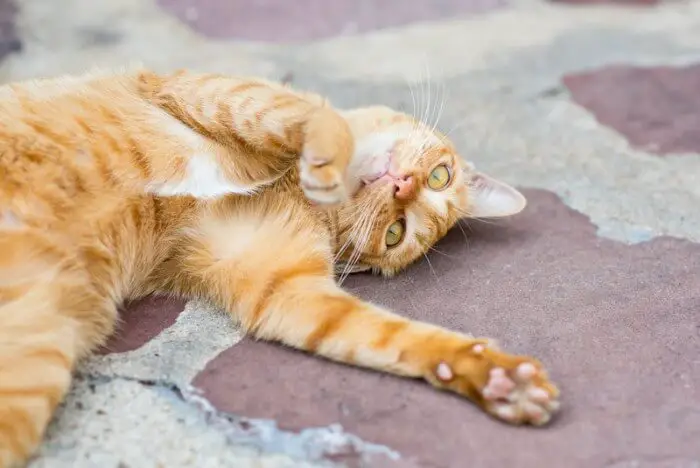
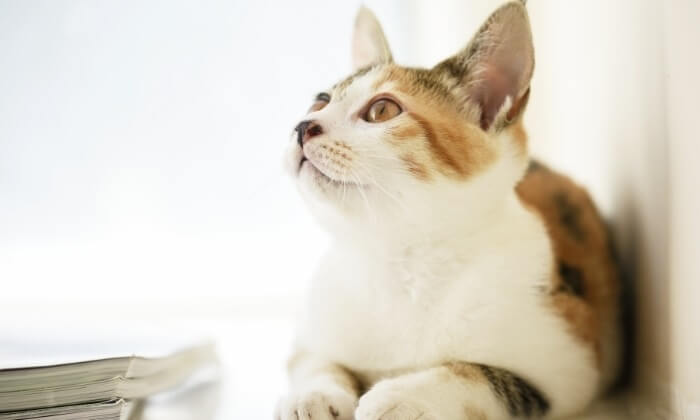
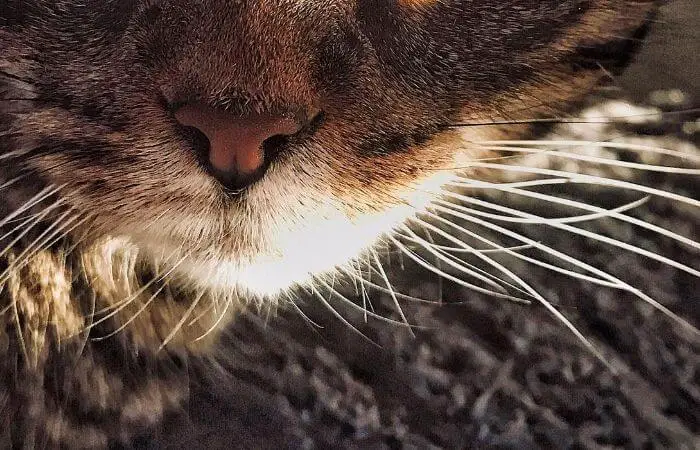
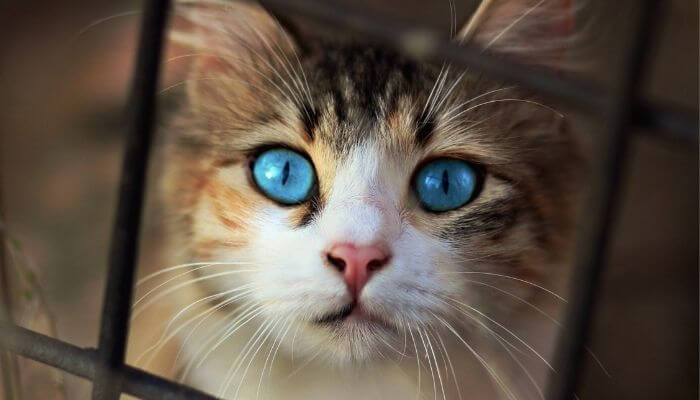
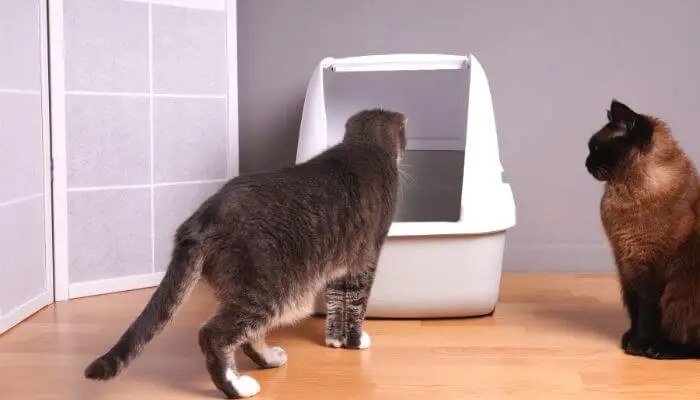
Leave a Comment